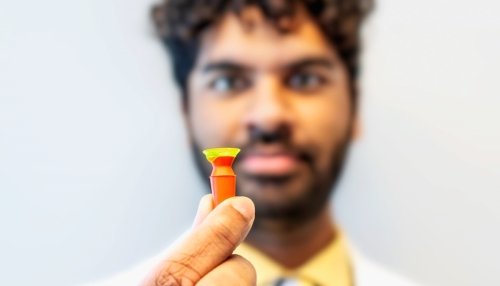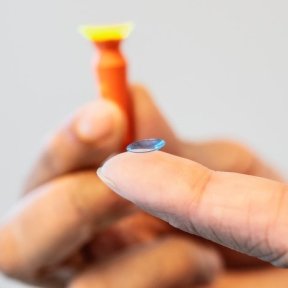Our doctors also diagnose and management an array of corneal disease including: keratoconus, pathological myopia, post-surgical corneal grafts, ocular surface disease, irregular corneas, disfigured eyes, and pediatric aphakia by utilizing both up-to-date ophthalmic instruments and specialty contact lenses.
How do you know if you may need a specialty contact lens?
- Have you been diagnosed with an irregular cornea (keratoconus, etc.)?
- Do you have severe dry eye?
- Have commercial soft lenses or glasses not improved your vision?
- Do you have light sensitivity or require a cosmetic benefit?
Specialty Contact Lens Doctors
Learn More About Specialty Contact Lenses at Midwestern
Specialty Contact Lens Information
Every patient has specific needs and we will work with you to find the correct lens for your individual condition.
Patient Education of Specialty Contact Lenses
Gas Permeable Corneal Lenses
Gas permeable lenses are small diameter lenses made of permeable plastic that resides primarily on the cornea and interacts with the eyelids to provide optimal vision with each blink. Often this lens provides sharper vision to patient with irregular corneas or high prescriptions compared to commercial soft lenses.
Scleral Lenses
Scleral lenses are large diameter lenses made of permeable plastic that resides primarily on the white part (sclera/conjunctiva) of the eye to provide optimal vision. This lens uses a fluid layer provides sharper vision to patient with irregular corneas and provides comfort especially to certain dry eye patients.
Hybrid Lenses
Hybrid lenses have a central portion made of permeable plastic surrounded by a soft skirt to provide optimal vision. This lens provides sharper vision to patient and provides better comfort to patient adapting to the sensation of certain contact lenses.
Custom Soft Lenses
Custom soft lenses are available to satisfy very high or specific nearsightedness, farsightedness, or astigmatism in order to provide optimal vision. This lens provides an alternative choice if commercial contact lenses cannot fit a patient’s prescription to provide better vision.
Tinted/Colored Lenses
Colored or tinted contact lenses are available to aid patients cosmetically to mask scars, normalize disfigured eyes or other ocular abnormalities. These devices also may provide a benefit to patient with migraines, color deficiency, or light sensitivity by blocking out light from entering the eye.






